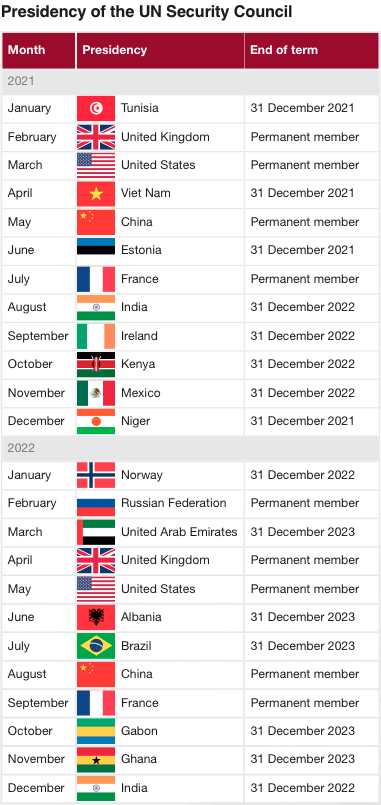Ireland assumes UN Security Council presidency for fifth time

In September, Ireland assumed the presidency of the UN Security Council for the fifth time since its entrance into the organisation in 1955. The monthlong presidency unfolded as the world’s eyes were once again tuned to developing situations of concern in the Middle East.
Speaking upon the assumption of the presidency, Taoiseach Micheál Martin said: “As President of the Security Council, we will be dealing with some of the key immediate challenges facing the international community, including the evolving situation in Afghanistan, and an ongoing concerning situation in the Middle East.
“We sought a seat on the UN Security Council to make a difference; to bring a principled, constructive and open approach to its vital work of promoting international peace and security, including at critical and challenging times such as this.”
The Taoiseach chaired a meeting of the Security Council under Ireland’s presidency on 23 September, focusing on the topics of climate and security. The Taoiseach proposed that the Secretary-General (currently António Guterres of Portugal) compile periodic reports to be submitted to the Security Council on climate change as a driver of conflict and that a special representative for climate-related security risks is appointed.
He also stated that Ireland would lead discussions on a thematic resolution on climate security in the days following. Describing climate change as the “defining challenge of our generation”, Martin said that “now was the time for the Council to act” and urged UN countries to increase ambitions with regard to the meeting of carbon emission reduction targets.
Of particular concern for the month in question was the situation in Afghanistan, the UN-led peace process in Libya, the Council’s monthly meeting on the Middle East Peace Process, and the situations in Syria, in Yemen, in Sudan and in South Sudan. In the early stages of the monthlong presidency, Minister for Foreign Affairs Simon Coveney TD chaired the Quarterly Debate on the UN Assistance Mission in Afghanistan (UNAMA) in New York. This meeting was focused on recent developments in Afghanistan and the renewal of the UNAMA mandate, which had been due to expire on 17 September. The extension of the mission for another six months was unanimously approved.
The mission mandate will deal with humanitarian and development efforts and does not involve peacekeeping. The resolution passed placed emphasis on “the important role that the United Nations will continue to play in promoting peace and stability in Afghanistan” and “the importance of the establishment of an inclusive and representative government” and pledged “to support the full, equal and meaningful participation of women in all levels of decision-making”.
Coveney stated: “We continue to call for an inclusive, negotiated, political settlement in Afghanistan, and for the protection of the rights of women and girls… It is more crucial than ever that the UN is able to continue its political and humanitarian work on the ground.”
Later in the month, Minister of State for European Affairs Thomas Byrne TD was also in New York to chair a meeting of the Security Council to mark the 25th anniversary of the Comprehensive Nuclear-Test-Ban Treaty. Speaking on the day of the meeting, Byrne reemphasised Ireland’s long-standing support for nuclear disarmament and non-proliferation: “Decades of nuclear test explosions have affected the lives and health of generations of people around the globe and left a lasting mark on the environment.
“By prohibiting all nuclear testing, the Comprehensive Nuclear-Test-Ban Treaty inhibits states from developing new nuclear weapons. It is therefore an important step along the path to a world without nuclear weapons, with their devastating consequences for all of humanity. I call for signature and ratification of the Treaty by all states, and for re-doubling our efforts to secure the entry-into-force of this landmark Treaty.”

Ireland returned to the UN Security Council for the 2021/22 period having secured the necessary 128 votes needed in the 191-nation UN General Assembly in June 2020. It commenced its two-year term on the Security Council in January 2021; September 2021 will be the only month during this tenure that Ireland holds the presidency.
The Security Council is made up of 15 countries, the five permanent members (China, France, Russia, the UK and the US) and 10 non-permanent members, currently Estonia, India, Ireland, Kenya, Mexico, Niger, Norway, Saint Vincent and the Grenadines, Tunisia and Vietnam. Presidency is determined by alphabetical order in the English language, hence Ireland assuming the presidency for just one month of the 24 in its membership of the Council.
Ireland has previously won non-permanent seats on the Council in 1962, 1981 and 2001, and served as President four times across these terms.





